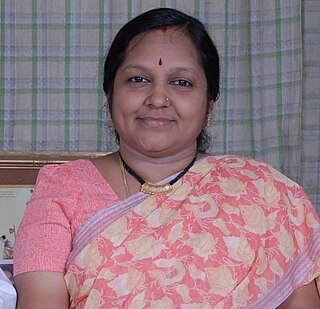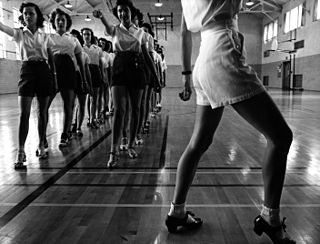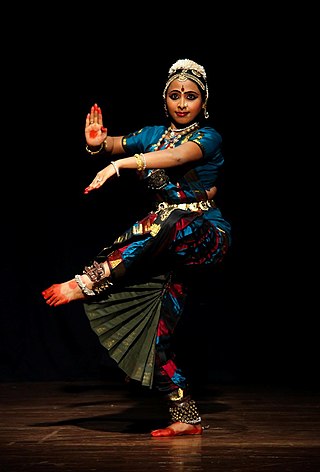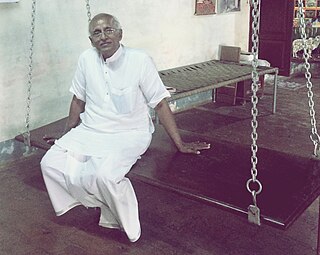The Imperial Society of Teachers of Dancing (ISTD) is an international dance teaching and examination board based in London, England. The registered educational charity, which was established on 25 July 1904 as the Imperial Society of Dance Teachers, provides training and examinations in a range of dance styles and certified dance teacher courses. The ISTD is recognised by the Qualifications and Curriculum Authority and the Council for Dance Education and Training and is also a member of the British Dance Council. It hosts various competitions in many different formats including Modern Ballroom, Latin American, Classical Ballet and Tap Dance as well as contemporary styles like Disco Freestyle.
The Orff Schulwerk, or simply the Orff Approach, is a developmental approach used in music education. It combines music, movement, drama, and speech into lessons that are similar to a child's world of play. It was developed by the German composer Carl Orff (1895–1982) and colleague Gunild Keetman during the 1920s. Orff worked until the end of his life to continue the development and spread of his teaching method.

Chennai Music Season is an event hosted every Mid November–January in Chennai Tamil Nadu. Spanning some 9 weeks, it comprises top-flight professional and amateur musicians. The traditional role of the Music Season is to allow aficionados of Carnatic music to appreciate performances by renowned artists, and to allow promising young artists to display their talent and skill. Audiences and artists come from across India and her diaspora to enjoy the season.

Music education is a field of practice in which educators are trained for careers as elementary or secondary music teachers, school or music conservatory ensemble directors. Music education is also a research area in which scholars do original research on ways of teaching and learning music. Music education scholars publish their findings in peer-reviewed journals, and teach undergraduate and graduate education students at university education or music schools, who are training to become music teachers.
Shri Ramani Thiagarajan is an Indian musician.

Nanyang Academy of Fine Arts is a publicly-funded post-secondary arts institution in Singapore, and a constituent college of the University of the Arts Singapore (UAS) from 2024.
Tiruchy L. Saravanan, also known as Flute Saravanan, is a prime disciple of Dr. N. Ramani, one of India's pioneer Carnatic flautists.
Dance in Singapore has been an integral part of its culture despite having a relatively short history of creative, artistic and professional dance. The range of dance reflects the cultural diversity of Singapore, from traditional dance forms to contemporary genres.
Neila Sathyalingam was a Singaporean classical Indian dancer, choreographer and instructor of Sri Lankan Tamil origin. An alumna of Kalakshetra in Madras under the tutelage of Srimathi Rukmini Devi Arundale, she emigrated with her family to Singapore in 1974. In 1977 she and her husband founded the performance arts company Apsaras Arts, which has staged performances throughout the world. She was the company's artistic director and continued to teach dance.

S. Sowmya is a Carnatic music singer. She learnt music initially from her father Dr. Srinivasan, and later from Dr. S. Ramanathan and Smt.T. Muktha. She received the Sangeetha Kalanidhi title by Madras Music Academy in 2019 and the Isai Perarignar by the Tamil Isai Sangam in 2022. She was appointed by the Govt of Tamil Nadu as Vice Chancellor of the Tamil Nadu Dr J Jayalalithaa Music & Fine Arts University on April 8, 2022, for a period of three years.

Chitra Visweswaran is an Indian Bharata Natyam dancer who runs a dance school, the Chidambaram Academy of Performing Arts, in Chennai.

A music school is an educational institution specialized in the study, training, and research of music. Such an institution can also be known as a school of music, music academy, music faculty, college of music, music department, conservatory, conservatorium or conservatoire. Instruction consists of training in the performance of musical instruments, singing, musical composition, conducting, musicianship, as well as academic and research fields such as musicology, music history and music theory.

Dr. Seshulatha Kosuru is a leading Carnatic musician and teacher from Andhra Pradesh. She has performed widely in India and abroad and has received numerous awards and titles from many leading organizations. She has tuned and released many carnatic & devotional albums and has also set to tune many dance ballets.

Dance education is a practice whereby students are taught a broad understanding of dance as a form of art and who are trained professionally in many different genres of dance. Dance education consists of specialized dancers who conduct original research for teaching others how to dance. Currently, dance itself is considered an allied form of art and music, thus dance in formal education is closely knit with these disciplines.
National Institute of Kathak Dance, also known as Kathak Kendra, is the premier dance institution for the Indian classical dance form of Kathak, and a unit of the Sangeet Natak Akademi, India's National Academy of Music, Dance and Drama, situated in New Delhi. Established in 1964, the institution is primarily dedicated to Kathak, though it also offers courses in Hindustani classical music (Vocal) and Pakhawaj and Tabla.

Lambda School of Music and Fine Arts is a bilingual school of music and fine arts and a venue for performances located in Pierrefonds-Roxboro in the West Island of Montreal, Quebec, Canada. The languages of instruction are in English and French. Lambda was inaugurated on 10 October 2008 by the mayoress of Pierrefonds-Roxboro, Madame Monique Worth and appointed representatives from the Chinese Embassy, Ottawa. The name Lambda was specifically chosen for a variety of reasons. In physics, the sign Lambda stands for wavelength. Through the wavelength of sounds, humans communicate through music. Through the wavelength of light, we communicate emotions through various colors in painting. Lambda is also the acronym for Learning of the Arts through the Mind and Body in the Discovery of Aesthetics. Lambda School supports other organizations of the arts and education in Quebec. The school has been a sponsor of scholarships for the Montreal Classical Music Festival organized annually by the Quebec Music Teachers' Association as well as the Lakeshore Chamber Music Society, and the Quebec Music Competition while also offering an array of scholarships and bursaries to deserving students of the arts. To encourage the development of high level performance in young musicians and to promote the spirit of transcending one's artistic boundaries Lambda School also supports the Quebec Music Competition, an annual music competition organized by the Concours International de Musique et des Beaux Arts de Quebec, offering various scholarships, prizes, certificates and perpetual trophies, and performance opportunities for winners. Lambda school also offers free programs to the community and senior citizens. It is also the official examination centre for RCM Examinations of practice and theoretical subjects in the West Island of Montreal since January 2011. In 2015, Lambda has also set up an auxiliary school in Shanghai, China. Starting from 2023, Lambda School of Music and Fine Arts has changed its name to Lambda International School of Music (Online) and offers exclusively online music lessons.

Murugashankari Leo is a Bharatanatyam artiste and teacher, theatre actor, and research scholar. Bharatantyam is an ancient Indian classical dance form which is known for its beauty, grace and uniqueness. Murugashankari performs this art and has given many recitals across India and other countries. She runs the institution Kalai Koodam – Academy of Performing Arts in Chennai and Madurai, where training in Bharatanatyam is imparted. She is also trained in Carnatic music and Nattuvangam.
Meenakshi Srinivasan is an Indian classical dancer and choreographer, and an exponent of the Pandanallur style of Bharatnatyam. She trained under Alarmel Valli and is considered among the most promising soloists of the younger generation of dancers in this traditional style.

Karaikudi Sambasiva Iyer Subramanian is a veena player in the Karaikudi Veena Tradition. He is the grandson of Karaikudi Subbarama Iyer and adoptive son of Karaikudi Sambasiva Iyer.
Santha Bhaskar, néePankyamma Santhamma was a Singaporean dancer, teacher, and choreographer. Born in India, she trained and performed in multiple classical Indian dance forms, including Mohiniyattam, Kathakali and Bharatanatyam. She performed and choreographed a number of well received dance productions in Singapore, and taught dance for several decades at the academy established by her husband as well as the National University of Singapore. Her work is known for incorporating elements of Thai, Chinese, and Malay dance, music, and culture into Indian classical dance. She is the recipient of several awards for her contributions to dance, including the Cultural Medallion, the Bintang Bakti Masyarakat, the Pingat Jasa Gemilang, and has been inducted into the Singapore Women's Hall of Fame.












